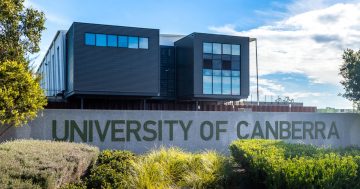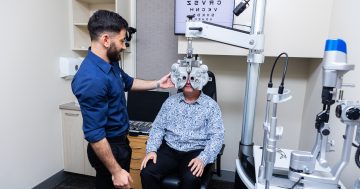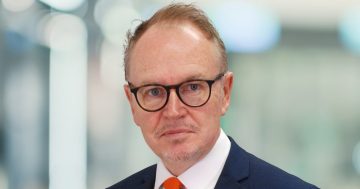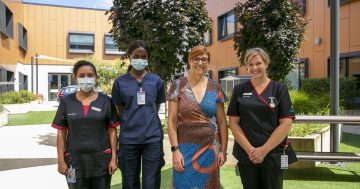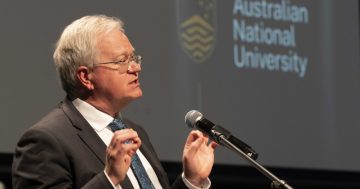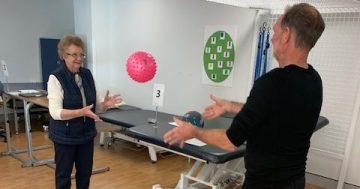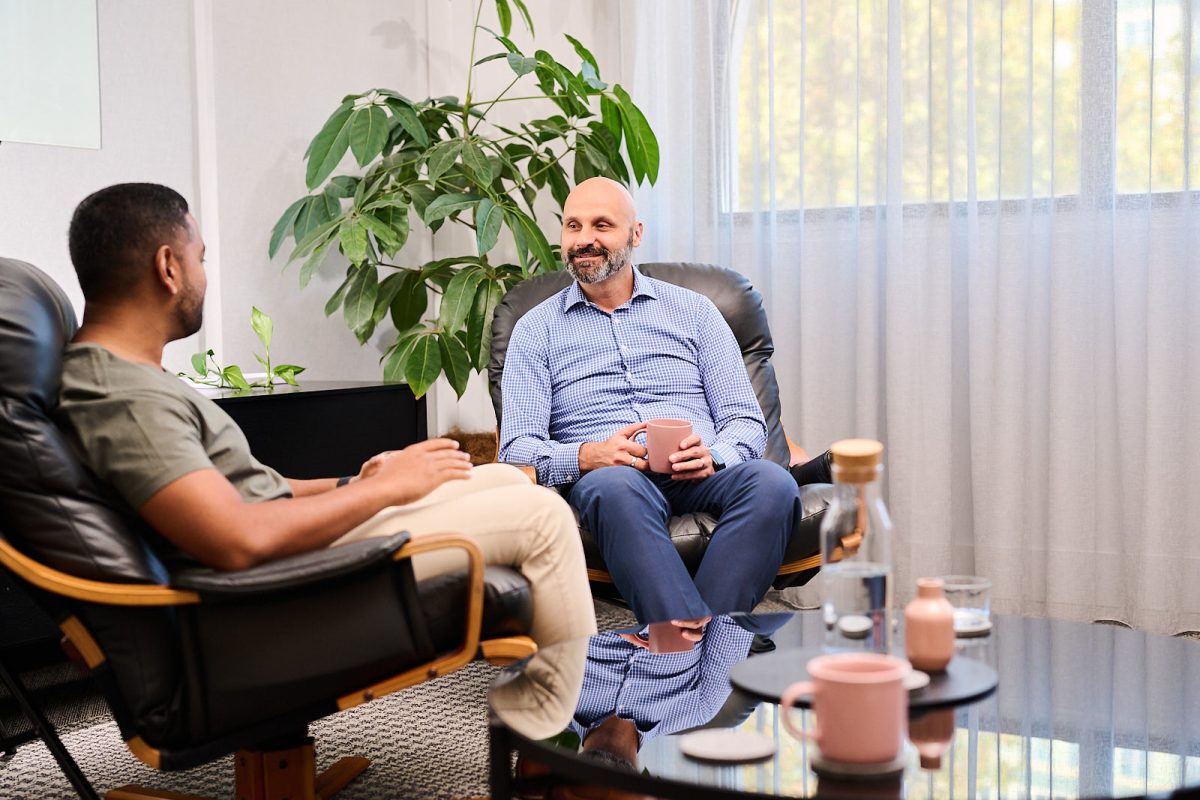
Nesh Nikolic (right) from Strategic Psychology says more uni places will help address the shortage of clinical psychologists in Canberra. Photo: Rohan Thomson from PewPew Studio.
Despite boasting Australia’s highest number of registered psychologists per capita, Canberra is still facing a shortage of mental health specialists at the coalface.
Clinical psychologist and managing director of Strategic Psychology Nesh Nikolic remains frustrated as he struggles to fill at least 10 vacancies ranging from early career psychologists to more senior roles at his Canberra practice.
Nesh said while there had been a national shortage of psychologists on the ground “forever”, the demand for mental health services had further increased as a result of COVID-19 lockdowns, weather events, the rising cost of living and housing shortages. This left many people to “fall through the cracks”.
“There is clearly a need for more psychologists in Canberra and has been for a long time,” he said.
“You look at all the large practices in Canberra and pretty much everyone is advertising for staff all the time.”
Strategic Psychology currently employs 16 clinical psychologists. Nesh said he could take on 10 more to meet patient demand.
Despite running a national recruitment campaign, he’s had little luck filling the positions.
Nesh said a contributing factor was the limited number of Psychology Master’s Degree places on offer at universities, particularly in Canberra.
He said while there were plenty of positions for students to study psychology and work as counsellors or social workers, the number of Master’s Degree places – required for students to become registered clinical psychologists – were capped.
“The psychologists we have coming out of Canberra’s unis are very highly qualified, well trained and clinically competent when they come out, but there needs to be a lot more coming through,” Nesh said.
He said the Australian National University (ANU) and University of Canberra (UC) had capped annual Master’s places which meant there was a significant number of students unable to progress through those crucial final two years of training to become a registered psychologist. This led to a bottleneck.
“It would be extremely beneficial if the universities could open up more Master’s places,” he said.
“There’s a plethora of really smart people out there that want to train in this field, and practices like mine that are willing to take them on and offer early career experience and guidance. If the universities in Canberra offered 100 more Master’s places today, they would most likely fill them.”
Nesh said the shortage of clinical psychologists was placing added pressure on Canberra’s GPs, hospitals and not-for-profit organisations who were being forced to pick up the slack.
Executive dean of UC’s Faculty of Health, Professor Michelle Lincoln, said the University of Canberra offered a range of under and postgraduate degrees in psychology, as well as courses in the aligned areas of counselling and social work.
“While the Bachelor’s and Honours courses equip students with the transferable skills that are highly sought after in a variety of roles and settings, it is the Master’s Degree that leads to a student becoming a registered clinical psychologist,” she said.
“The university has seen a steady demand for our psychology courses over the last five years and on average, close to 900 students are enrolled in various psychology or related courses each year. The seats for Master of Clinical Psychology course are capped, but there is currently no limit to the number of students being enrolled in an undergraduate course.”
Professor Lincoln said the undergraduate courses were predominantly government-funded but the university was continuing to engage with the federal and state governments on ways to fund additional courses to support the required growth in the workforce in the ACT and region.
“At UC, it’s the hands-on experience that uniquely positions the university to attract new students in the Master’s course with up to 1000 hours of supervised practical placements on offer including UC’s very own student-led health clinics,” she said.
“Additional support is offered to rural students for placements.”
Currently, about 20 Master’s students graduate each year from UC.

Strategic Psychology staff make time to chill out to avoid burning out. Photo: Rohan Thomson from PewPew Studio.
Nesh said not all psychologist positions were patient facing, while many left the industry to follow other career paths or raise their family.
“We need more psychologists on the ground so we can service the community,” he said.
“There’s a growing need for people to come in and see a psychologist, but the workforce doesn’t seem to be meeting that growth.
“There are scenarios where there are people that can’t get the care and support they need. They just have to wait. The ACT Health system is always exhausted and, unless the patient is in a very severe state, they won’t be taken on.”
He said attracting and retaining clinical psychologists in the private sector could be difficult due to burnout.
“Psychologists look at their calendar and they’re booked out months ahead,” he said.
“Being compassionate people, they are drawn to help and not being able to, places a lot of pressure on their shoulders. That environment erodes how you feel and you get that sense of helplessness.”
According to Dr Emily Macleod, the lead author of an ANU study, COVID-19 and weather events have “taken a considerable toll on psychologists’ own mental health”.
“Around one in three psychologists reported symptoms of depression, while almost half, 47.6 per cent, reported low wellbeing,” Dr Macleod said.
“More than a quarter, or 26.4 per cent, reported burnout, while a third were in danger of burnout.”
Dr Macleod said the psychology workforce was reaching a “crisis point” due to poor work culture or unsustainable work pressure, and needed more support.
“There are structural issues that need to be addressed,” she said. “Things like training more psychologists to meet demand, providing them with disaster-specific training and creating workplace cultures that encourage flexible work arrangements would help significantly.”
As the practice managing director, Nesh said it was important for him to mitigate burnout and have measures in place to ensure his staff were supervised and supported, no matter their role.
Strategic Psychology runs one-on-one staff chats and group sessions, as well as team lunches, afternoon drinks and yoga classes. The practice also has a chill-out space where staff can play pool or table tennis.














